This month we bring you news from Venezuela, Colombia, Argentina, Chile and Suriname
Highlights are:
- Regional: AI Directors in the region have shared concerns about President Trump’s agenda and the implications for human rights in the region and more widely
- Venezuela: There is a new Urgent Action calling for the release of four unfairly detained Human Rights Defenders
- Colombia: There is a new Urgent Action calling for the protection of the civilian population of Catatumbo, where armed violence has led to dozens of civilian deaths and massive forced displacements
- Argentina: Tens of thousands have taken to the streets to protest against the threat to diversity rights arising from President Milei’s recent pronouncements
- Chile: Two police officers have been sentenced to imprisonment for an unprovoked attack in 2019 that led to a 24-year-old student and athlete losing vision in one eye
- Suriname: Plans for a major mining project in western Suriname have sounded alarms in nearby Indigenous communities
REGIONAL
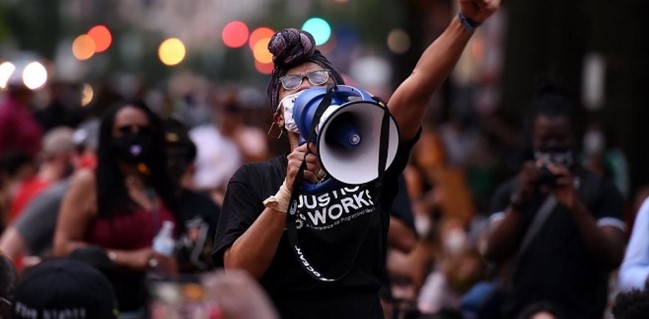
The executive directors of all Amnesty International Americas sections have joined to share concerns about President Trump’s agenda and possible threats to human rights in the U.S. and around the world and especially the impacts on the Americas region. Amnesty International Directors also reminded the incoming U.S. administration of its international human rights obligations in a challenging and polarised environment.
VENEZUELA
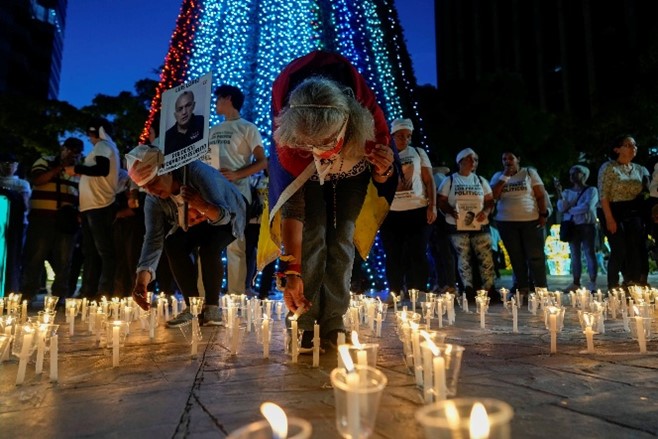
We have launched a new Urgent Action calling for the release of Javier Tarazona, Rocio San Miguel, Carlos Julio Rojas, and Kennedy Tejeda. Carlos Correa, who we have also been campaigning for, has now been released. Correa had been detained for eight days after being intercepted by hooded individuals dressed in black, without his friends or family knowing his whereabouts. There are reports of him to be soon facing criminal charges, although no evidence of criminal wrong-doing has been presented.
Javier Tarazona has been unfairly detained since 2 July 2021, Rocio San Miguel since 9 February 2024, Carlos Julio Rojas since 15 April 2024, and Kennedy Tejeda since 2 August 2024. Rocio San Miguel has not received complex surgery and rehabilitation for an injury sustained months back whilst in custody.
A New York Times report has noted how the Venezuelan authorities’ failure to crack down on, and its possible encouragement of, the Colombian rebel group, National Liberation Army (ELN), in Venezuela has fuelled violence and criminality in Colombia. Colombian President Petro, who had urged President Maduro to publish the recent disputed Venezuelan Presidential election results, noted the resurrection of the ELN as a crisis of national sovereignty.
The Chilean authorities have alleged that Maduro’s government was responsible for the killing of Ronald Ojeda. Ojeda, a former Venezuelan Army offer and political dissident, had been at home with his wife and son when he was forcibly removed from his house in Chile by men alleged to be Venezuelan operatives.
COLOMBIA
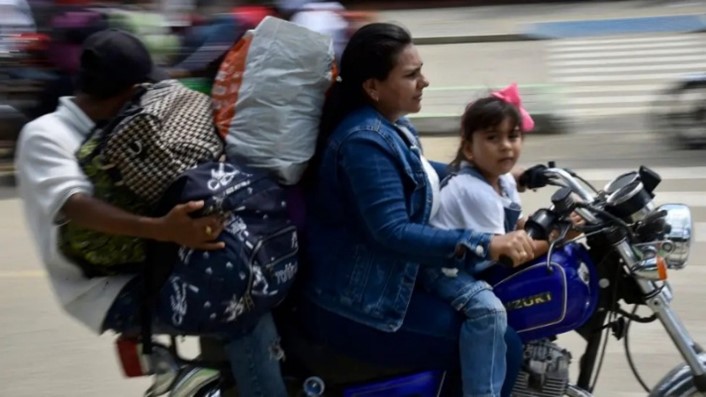
Amnesty has made a public statement calling for the protection of the civilian population of Catatumbo, a region in the north-east of Colombia where last month armed violence broke out involving confrontations between the National Liberation Army (ELN) and the so-called General Staff of Blocs and Fronts (EMBF) resulting in reports of killings of dozens of civilians, massive forced displacements of thousands of people and heightened risks of forced confinements, more killings and enforced disappearances. You can support Amnesty’s call by taking this Urgent Action. We worked on this case at our February meeting – here is a letter you can use.
ARGENTINA
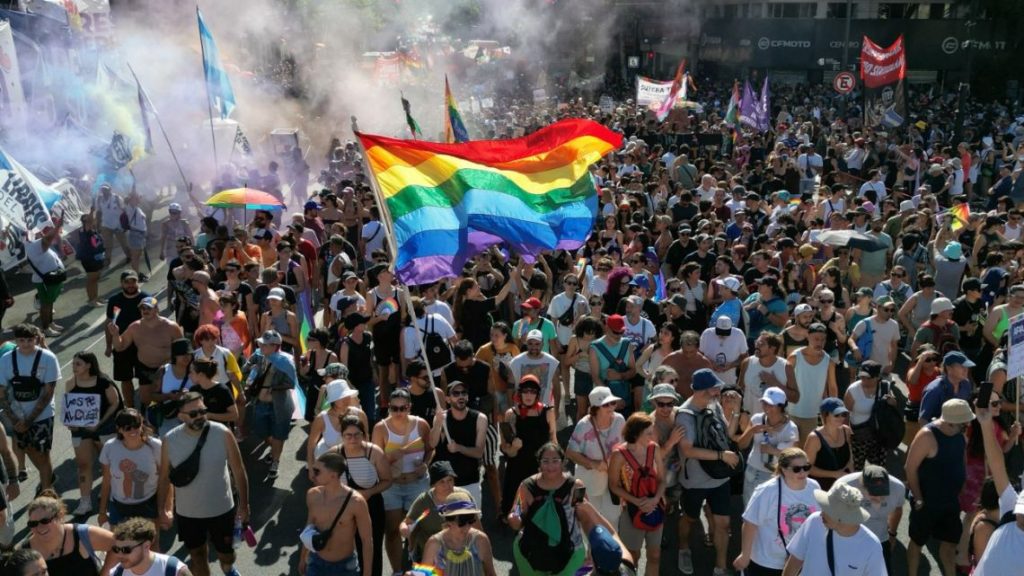
Tens of thousands of Argentines took to the streets across the country in defence of hard-fought diversity advances and to denounce recent anti-“woke” pronouncements by President Javier Milei. The “Marcha Federal del Orgullo Antifascista y Antirracista LGBTQI+” march was organised by women’s and LGBTQ rights groups. It was called in response to statements made by Milei to the World Economic Forum in Davos in which he slammed “the mental virus of woke ideology”, and spoke out against “radical feminism” and “gender ideology”.
Human Rights Watch latest report highlights that President Javier Milei’s first year of office has led to “institutional deterioration”, including cuts to social program funding, obstacles to the freedom of peaceful assembly, and hostile rhetoric against journalists, lesbian, gay, bisexual, and transgender people. A new protocol criminalises any disturbance to traffic arising from a demonstration. It also gives police broad powers to disperse demonstrations and allows the government to force protest organisers to pay for police operations in response to protests and public property damage caused by demonstrations.
Justice Minister Mariano Cúneo Libarona said the government will “eliminate femicide from the Argentine penal code” adding that feminism was a “distortion of the concept of equality”. Mariela Belski, Amnesty International Argentina, responded “It is extremely worrying that the specificity of this type of crime and the obligations of the Argentine state to prevent, punish and eradicate violence against women, which have constitutional roots, are not understood.” Feminist organization Mujeres de la Matria Latinoamericana has data showing Argentina recorded 255 femicides in the past year.
The Abuelas de Plaza de Mayo announced the finding of “Granddaughter Nº139.” The organisation seeks to determine the true identity of children born in captivity from prisoners who were later declared as “disappeared” by the military dictatorship. The parents were Marxist-Leninist Communist Party militants Noemí Beatriz Macedo and Daniel Alfredo Inama who were both abducted on November 2, 1977. Both are still listed as “missing”.
CHILE
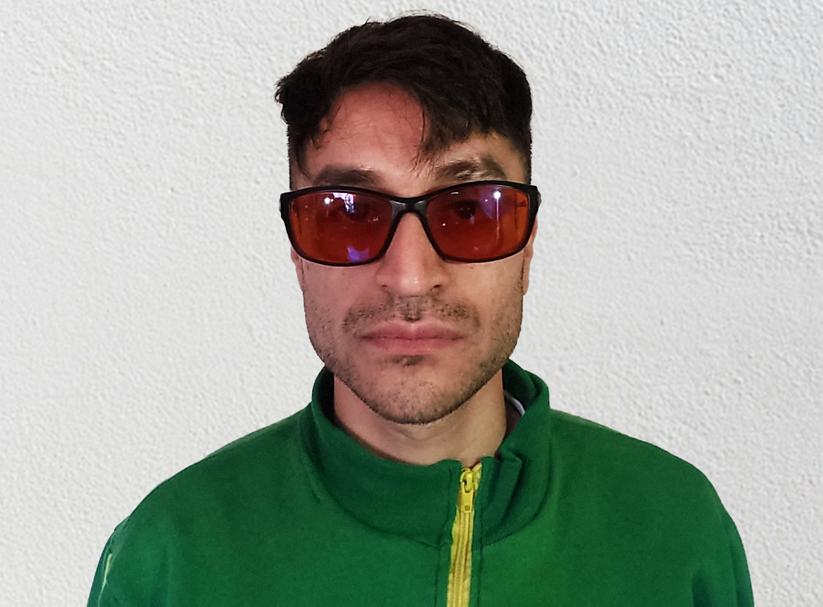
In October 2019 Renzo Inostroza, a 24-year-old university student and athlete, was with a friend who was subject to an unprovoked attack. Renzo started filming and was shot, receiving 19 pellets in his face and body, losing vision in one eye. He was featured in the Amnesty report Eyes on Chile. Now Carabineros Corporal Belisario Alexis Morales has been sentenced to eight years in prison, for using his riot shotgun without justification or compliance with protocols. Lieutenant Fernanda Belén Cerda, who ordered the use of the weapon, was sentenced to three years in prison, under supervised release.
SURINAME
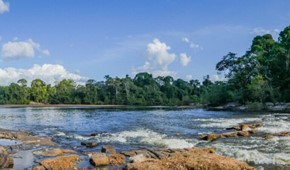
Plans for a major mining project in western Suriname have sounded alarms in nearby Indigenous communities, who say that the project will destroy local ecosystems, violate their land rights and encroach on their traditional ways of life. A bauxite mine run by Chinese corporation Chinalco could begin operating in 2026, with first construction work planned for the middle of this year. The scale of the project has worried activists, who say the government is prioritising the economy over the rights of its citizens.
All the best,
South America Team – David Rogers (Argentina and Chile), James Baird (Venezuela) and Graham Minter (rest of South America,). And please don’t forget that you can follow us on our Facebook page and Twitter.